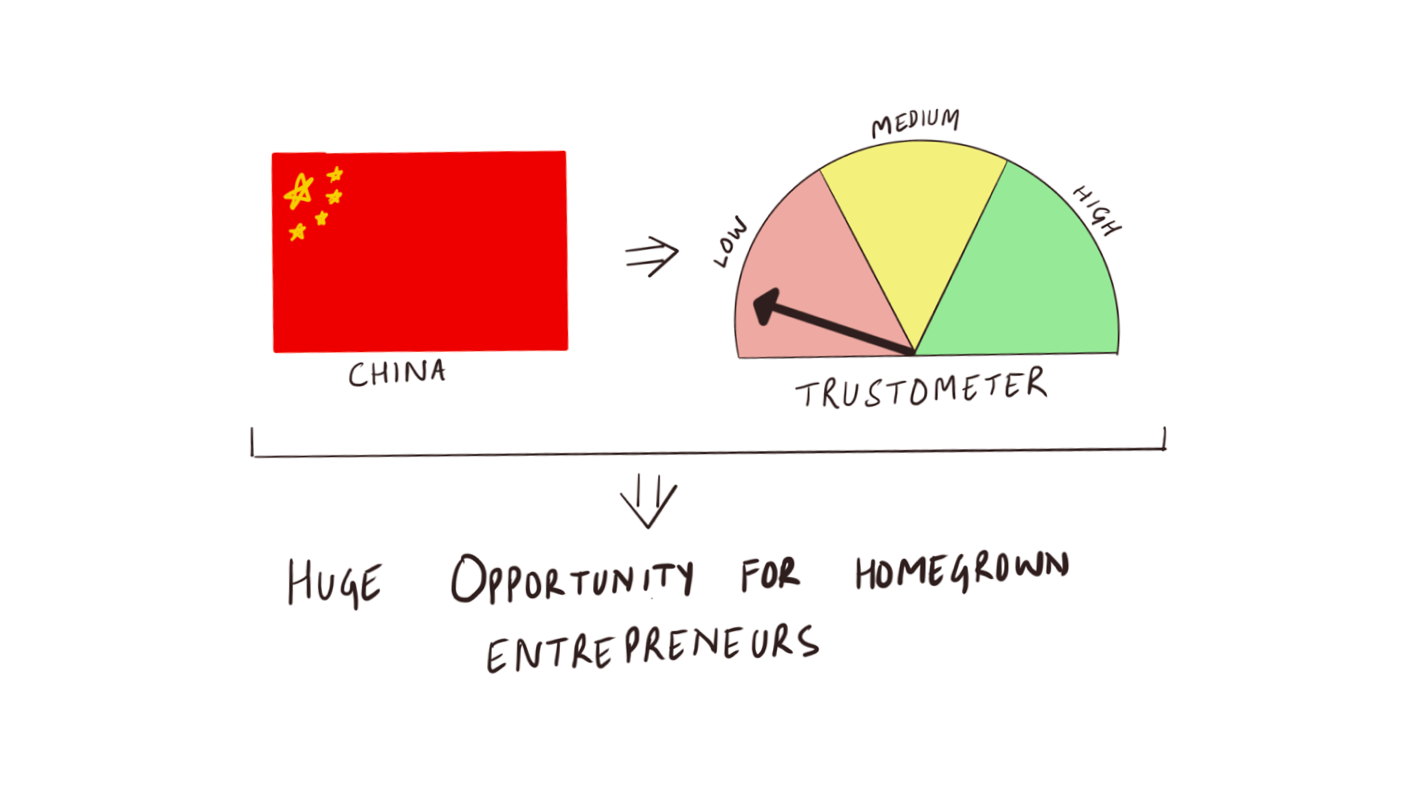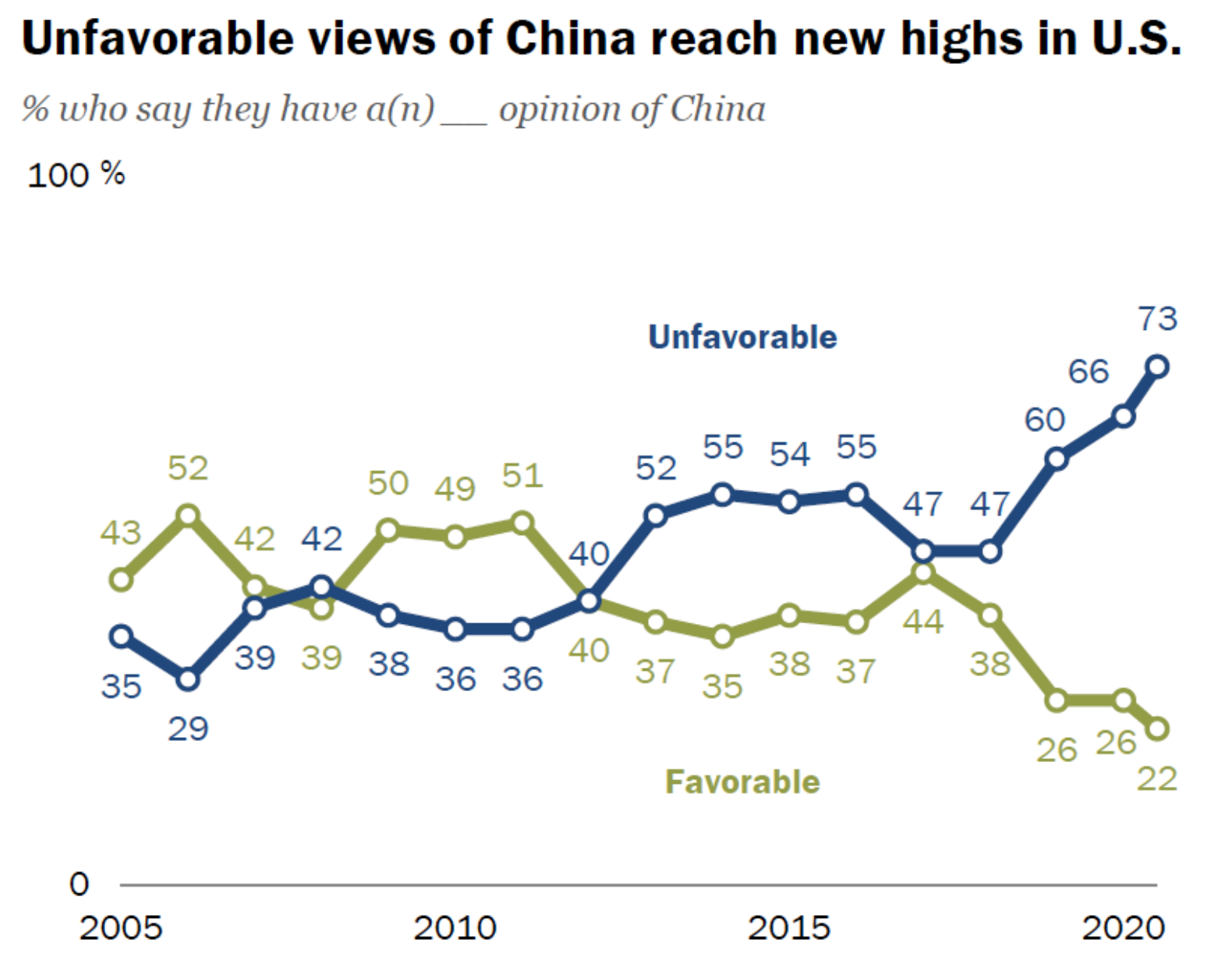Society, Specialisation, Trust and China
Size of society ∝ Specialisation ∝ Interdependence ∝ Trust. Trust in China is at an all-time low; Indian entrepreneurs - listen up!

Table of Contents
The economy is a representation of how society behaves with money. Our view of society is formed by observing human behaviour.
Since the beginning of time, every individual's life has been a series of choices between - virtues like truth, right-conduct, peace, non-violence and love, and vices like lust, anger, greed, pride, attachment and jealousy. So, human behaviour, despite changes over the years, tends to be similar.
This article looks back at the first form of society and commerce that existed, and walks its way to where we are today. While discussing interesting topics like – specialisation, interdependence of the world, trust, and China.
This article will delve into it in the following format -
- The making of society, and specialisation
- Trust makes the world go round
- China's trust deficit - opportunities therefrom
Please skip to whichever heading you want to read about by clicking on it. And if you wish to skim a section, just read the text in bold.
The making of society, and specialisation
Early humans lived here and there, and ate what they found. Accidentally, they figured out how to grow food and started to grow it regularly.
Then, to save themselves from heat, cold, rain and thunder - they built shelters and wore clothes.
Soon, they realised that community living was better than fending for oneself. And a village was formed. Through interaction within a community, a society was born.
Small groups of people, though lived close to each other, everyone grew their own food, built their own house, and made their own clothes.
One day, A noticed that B had a really nice house. So, A asked B to make a house for A, in exchange for a month's food.
And hence, specialisation was born. So long as someone in society needed a specialist's service, the specialists need not grow their own food.
And from here on, specialisation thrived!
Specialisation has many advantages. The foremost being increased efficiency. Adam Smith, the father of economics explains this through the following example - In a pin manufacturing factory, if one worker is hired to produce pins by performing all 18 steps in the process, he would barely make a single pin in a day. But, if 18 workers are hired, one worker per step, 50,000 pins can be produced in a day!
The clear takeaway here is that division of labour allows for specialisation, which increases efficiency.
Let's think about this example for a minute. It talks about a pin manufacturing factory! Out of all the useful things, a pin is one of the smallest. Yet, it has a factory to itself. Thousands of workers, catering to the pin demand of millions.
Hence, as societies grow in size, even the smallest needs start being met through specialists. Example - nail salons, plain t-shirt brands, mobile phone cover manufacturers, etc. These exist because a small need, when taken for a large number of people, equals large demand.
This phenomenon is explained through the following image -

Trust makes the world go round
The cycle in the image above is fascinating. But, what is the underlying current that powers it all?
It's trust. Trust lies at the foundation of society and the economy.
Let me explain...
Humans transact only with people (or in products) they trust. When they know that the product or service they get in return for their money is valuable. Nobody wants to transact with a murderer, a cheat, a liar, an unethical shopkeeper who adulterates products, etc. or buy products or services that are substandard for the price.
Once the trust disappears, soon enough, dealings disappear as well.
Due to globalisation, countries across the world have been increasingly trading with one another. Hence, putting together the economies of many countries around the world to form one massive economy. Technology has further exacerbated this trend by making transacting and communicating across geographies and languages, much easier.
Today, the world is more interlinked than ever. And can be thought of as one market.
If we put the entire world in the cycle (in the image) above – the size of that society is huge. The cumulative demand is also enormous. And the fields of specialisation are getting narrower than ever. And so on...
Yes, this allows people to get better and better products and services, but it leads to a more and more interdependent world.
This interdependence is essential for specialisation to thrive. And it is completely based on trust!
In such a world, if one participant who caters to a large need, suddenly loses everybody's trust, the demand for that need, looks to move to another specialist. Because it refuses to accept the supply from the original source, which has now become untrustworthy.
This hurts businesses who are dependent on that source. But it's also a huge opportunity for those who can use their capability to build a specialisation to cater to that looking-to-move demand.
China's trust deficit - opportunities therefrom
Over the past few decades, China built amazing manufacturing capabilities. Their pace of setting up production was envied all over the world. They captured market share across industries and priced manufacturers from other countries out of the market. Currently, they own the largest share of global manufacturing.
For years, their stance on human rights and general secretiveness was frowned upon. But their handling of the coronavirus ruined their global image.

As for their relationship with India, they have repeatedly caused tension at the border, and diplomatic relations with them are at an all-time low. Recently, the Government of India has announced a ban on 106 Chinese apps and restricted imports (Example - TVs) and hiked import duties (Example - Solar panels) on many Chinese products.
Business opportunities often emerge due to unique situations. And this is one incredible situation! In the years to come we will hear hundreds of success stories about manufacturing success from homegrown enterprises. They will all start with - "People didn't want to buy Chinese goods (or the government banned this, or hiked duty on that), so we offered an alternative..."
Of all the imports India makes, 14% come from China - that's business worth more than ₹ 5 Lakh Crores.
These include - electronic products, organic chemicals, nuclear machinery, parts of computers, cars and motorcycles parts, toys, fertilizers, mobiles, lightings, milk products, optical and medical instruments, iron and steel, it's a long list.
For the past few years, competing with China was considered business suicide, but in the current scenario, this has flipped on its head. Anyone with a manufacturing background or interest should channel their entrepreneurial fire and use this situation to their and the country’s advantage.
Stebi Newsletter
Join the newsletter to receive the latest updates in your inbox.

